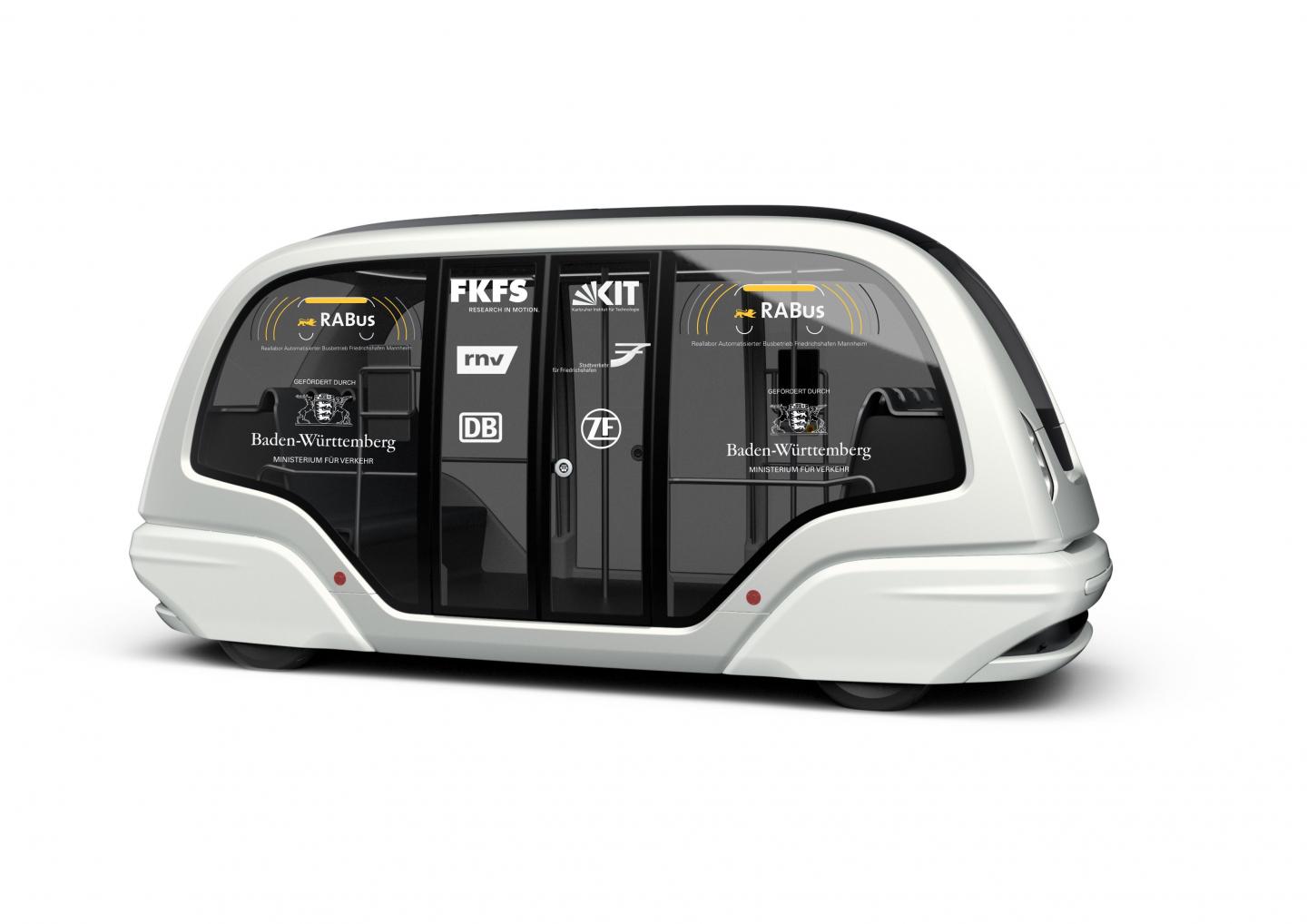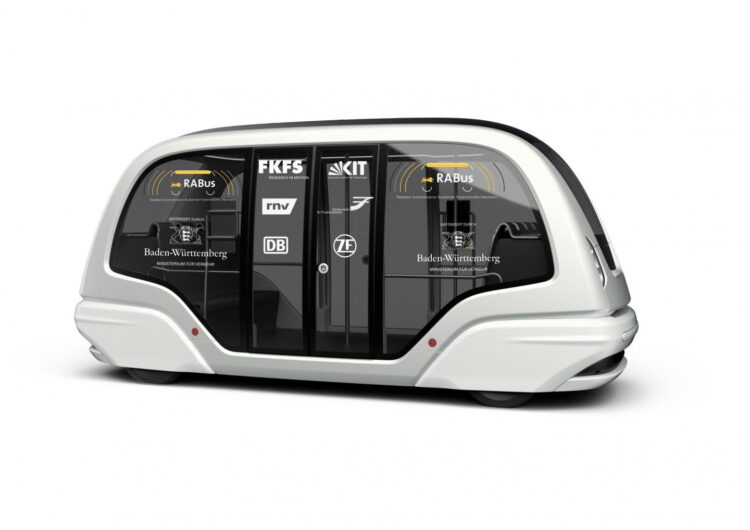New collaboration project to test electrified and autonomous vehicles in regular traffic — KIT studies acceptance and impacts

Credit: ZF
Testing electrified and autonomous vehicles in public passenger transit is the goal of the RABus collaboration project. In the cities of Mannheim and Friedrichshafen, self-driving busses will be tested in regular urban road traffic. Researchers of Karlsruhe Institute of Technology (KIT) will accompany project work by studying demand, acceptance, and impacts. The project is to result in a model concept for efficient public passenger transit with autonomous busses in Baden-Württemberg. The State Ministry of Transport will fund RABus with EUR 7 million. Today (November 18, 2020), the funding approval was handed over by State Minister of Transport Winfried Hermann in Stuttgart.
RABus, the real-world lab for automated bus operation in urban and rural public passenger transit, is one of the actions taken to reach the strategic goals for automated and networked mobility in Baden-Württemberg. During a virtual ceremony, State Minister of Transport Winfried Hermann handed over the approval of funding in the total amount of EUR 7 million to the RABus Consortium. Consortium members are the Research Institute of Automotive Engineering and Vehicle Engines Stuttgart (FKFS), Karlsruhe Institute of Technology (KIT), Rhein-Neckar-Verkehr GmbH, Stadtverkehr Friedrichshafen GmbH with DB ZugBus Regionalverkehr Alb-Bodensee GmbH, and ZF Friedrichshafen AG.
Development, implementation, and tests of economically efficient and reliable operation of automated vehicles are of high relevance to future public passenger transit. Presently, automated vehicles in road-based public passenger transit are mostly operated at low speed. This results in longer driving times and reduces acceptance and utilization. RABus seeks to change this situation. The cities of Mannheim and Friedrichshafen are planned to be used as real-world laboratories. There, an economically efficient public passenger transit system based on electrified and automated vehicles will be established by the end of 2023. The focus in Mannheim will be on mixed inner-city traffic in a new urban quarter. Work in Friedrichshafen will focus on interurban operation.
To ensure adapted and safe driving, the vehicles are planned to go with the flow of traffic at acceptable speeds both in the cities and outside. The busses will be made by 2getthere, a subsidiary of ZF Friedrichshafen AG. They offer room for up to 22 passengers. Thanks to their compact dimensions of 6 x 2.1 x 2.8 m, they can be integrated in urban traffic flow in a demand-driven and schedule-independent way.
Transport Model with Autonomous Busses for Baden-Württemberg
The scientific part of the project covers research into acceptance, economic efficiency, and technical solution approaches. “RABus will be a real-world lab to produce useful data by operating several vehicles under real conditions. This goes far beyond mere demonstration operation,” says Dr. Martin Kagerbauer from KIT’s Institute for Transport Studies (IFV). Within RABus, IFV will analyze aspects of demand, acceptance, and impacts on road traffic. The researchers will evaluate the data measured during real operation and interview passengers prior to, during, and after use. The feedback will be incorporated in the design of future public passenger transport systems. Moreover, the researchers will generate transport demand models for Friedrichshafen and Mannheim, which will include automated busses and be suited for simulating their efficient use. On this basis, future public passenger transport systems with autonomous busses will be conceived. In addition, a transport model will be developed that will use the data to identify other potentially suited regions in Baden-Württemberg.
###
More about the KIT Mobility Systems Center http://www.
Press contact:
Margarete Lehné, Deputy Press Officer, Phone: +49 721 608-41157, [email protected]
Being “The Research University in the Helmholtz Association”, KIT creates and imparts knowledge for the society and the environment. It is the objective to make significant contributions to the global challenges in the fields of energy, mobility, and information. For this, about 9,300 employees cooperate in a broad range of disciplines in natural sciences, engineering sciences, economics, and the humanities and social sciences. KIT prepares its 24,400 students for responsible tasks in society, industry, and science by offering research-based study programs. Innovation efforts at KIT build a bridge between important scientific findings and their application for the benefit of society, economic prosperity, and the preservation of our natural basis of life. KIT is one of the German universities of excellence.
Media Contact
Monika Landgraf
[email protected]
Original Source
https:/





